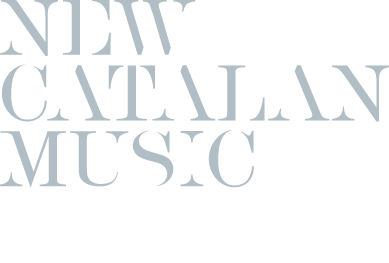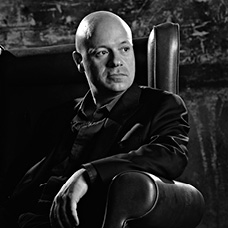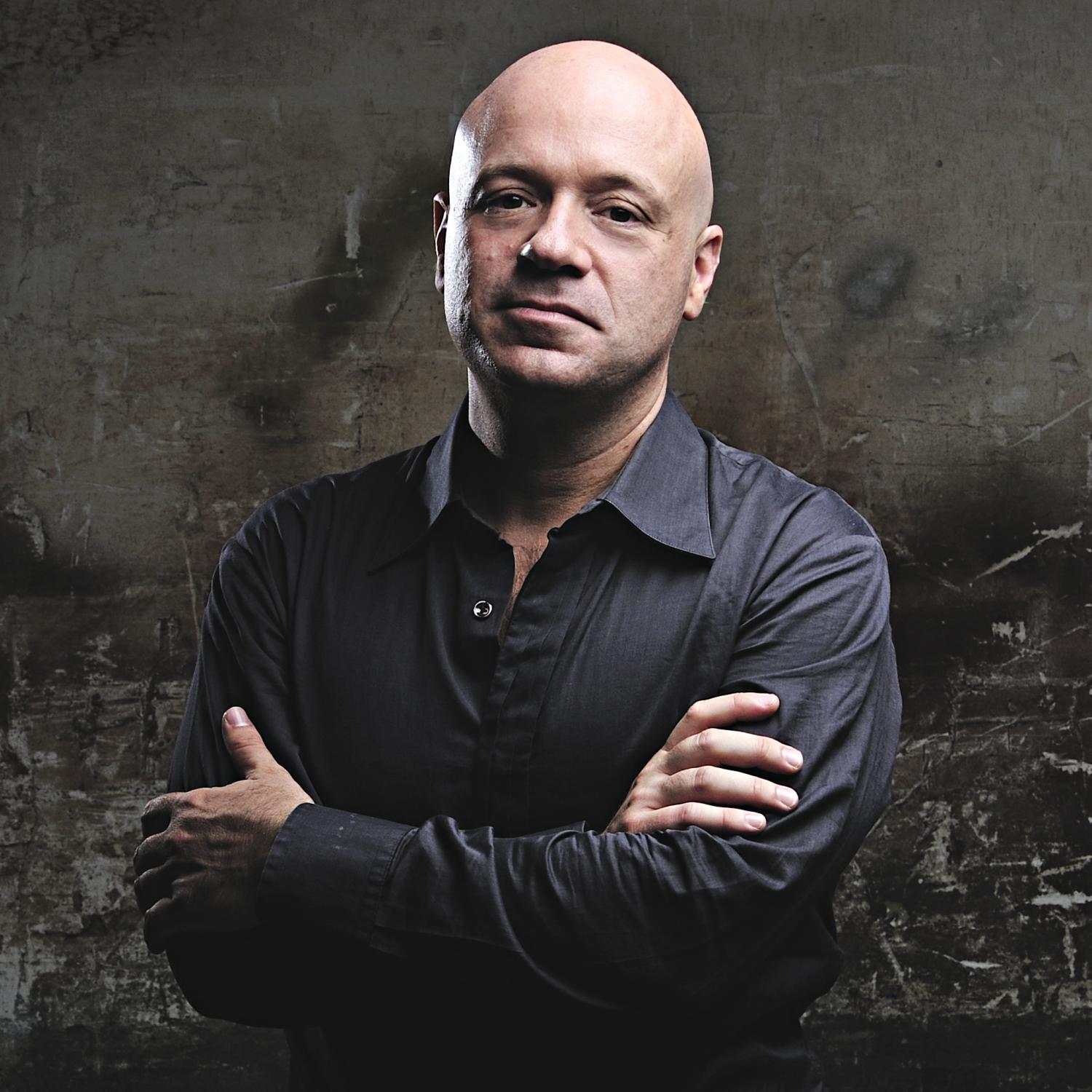Albert Guinovart
Contemporary music
(Albert Guinovart, Barcelona 1962)
Pianist and composer. His defence of melody, his lyricism and his post-Romantic touch are essential elements to his eclectic and seductive musical universe.
As a pianist, after finishing his studies in Barcelona, he completed his training in London with Maria Curcio (to whom he was an assistant to) and began a career as a soloist focused on Romantic repertoire, with a special dedication to the work of Albéniz, Granados and Turina. His brilliant career has also developed around the world of lied, accompanying the great Barcelona-born soprano Victòria dels Àngels in the past few years on her international tours.
A remarkable orchestrator, he has written plenty of stage music (operas, musicals, ballet), as well as various symphonic works and chamber works in which the piano always plays a central part. These are often pieces that are performed by the composer himself. In his music of impeccable facture, he always surprises with his melodic freshness, his cantabile meaning, rhythmic firmness, and an outstanding orchestration that strongly impacts the audience.
He has written two chamber operas. The first one, Atzar, with libretto by Rosario Curil premiered at the Universitat de Barcelona on July 1, 1998, commissioned by the Aula de Cant del Conservatori del Liceu and conducted by Miquel Ortega. The second, Alba Eterna, with libretto by Jordi Faura, was presented on December 12 and 13, 2009, at the Teatre Fortuny de Reus, commissioned by the same theatre along with the company Camera Musicae, with the voices of the soprano Begoña Alberdi, the mezzo Clàudia Schneider, the tenor Antoni Comas, and the baritone Marc Canturri, all accompanied by the Orquestra Camera Musicae and conducted by Tomàs Grau.
He is also the author of the ballet Terra baixa, premiered in 1999 by the Esbart de Sant Cugat at the Teatre-Auditori of Sant Cugat and with the Esbart i l’Orquestra Nacional de Cambra d’Andorra. There are also the cantatas Els fills del segle, on poems by Miquel Desclot, premiered in 1994 at the Palau Sant Jordi by the Orquestra Ciutat de Barcelona (currently the OBC) and a massive choir made up of six hundred voices; Arion i el dofí (2008), for tenor, baritone, children’s choir and instrumental ensemble, and El bestiolari de la Clara, which premiered at the Teatre Auditori de Granollers in 2009. On 18 February 2014, the Cor Vivaldi-Petits Cantors de Catalunya premiere at the Palau de la Música Catalana, his Te Deum 2014 for double choir of white voices and piano, work commissioned to celebrate the 25th. anniversary this vocal group.
His extensive orchestral catalogue shines with scores like: Suite Goyesca, premiered in the fall of 2002 during a tour through Asia done by the Orquestra de Cadaqués, with the conductor Phillipe Entremont; his Concert per a piano i orquestra, «Traces», premiered on May 27, 2005 at the Teatre La Faràndula de Sabadell by the Orquestra Simfònica del Vallès conducted by Edmon Colomer; La vida secreta, premiered on July 29, 2006, by the Orquestra de Cadaqués, with the conductor Vasily Petrenko; the symphonic poem for a large orchestra El lament de la Terra (2008), commissioned by the Orquestra Simfònica de Barcelona i Nacional de Catalunya (OBC), premiered on January 9, 2009, with the conductor Roberto Minczuk. Another breathtaking piece is Dolce suono, a concert for tube tenor and string orchestra, premiered by Víctor Ferragut –to whom it is dedicated– and the Orquestra Gèrminans, conducted by Àlex Sansó, on March 19, 2010, in Reus. And last but not least, there is Les mans del vent, a concert for piano and symphonic band, premiered by the Banda Municipal de Barcelona, conducted by Franz Paul Decker and with Guinovart himself as a soloist, on November 28, 2010.
Some of his chamber works include: Clarobscur, concert for percussion, piano and strings (2005), commissioned by the Fundació Caixa Catalunya for a Rembrandt exhibit; La ciutat que parla, la ciutat que sona, for piano, brass quartet and percussion, premiered at the Auditori de Barcelona in 2008; the trio Mirall trencat, for trombone, violin and piano, premiered on February 11, 2009 at the Auditori Municipal de Terrassa; Les aventures de Monsieur Jules, for a brass quintet and piano, inspired by the novels of Jules Verne, which premiered at the Festival SBALZ of Alzira on June 30, 2011 with the Spanish Brass Luur Metalls. Also for piano we can find: the youthful and ambitious Sonata, composed and premiered in Barcelona in 1989; Tres Preludis (1992), premiered at the Festival Castell de Peralada; Sonatina sobre temes de Mompou (1993); Fantasia-Evocació (en homenatge a F. Chopin) premiered at the Auditori de Barcelona in 2010; Souvenirs d’été (a la memòria de Maria Curcio), for piano for four hands, premiered at the Festival de Músiques de Torroella de Montgrí by the pianist Eric le Sage and Guinovart himself, on August 10, 2010; and Valsos poètics (a la memòria d’E. Granados), premiered at the Festival de Pasqua de Cervera in April 2011.
Among his musicals shines his biggest success Mar i Cel, pride of the Catalan theatre company Dagoll Dagom. Premiered on October 7, 1988, at the Teatre Victòria de Barcelona, the work –with new orchestration and a completely revised score– was revived in 2004 at the Teatre Nacional de Catalunya. On October 12, 2006, the Spanish version premiered at the Teatro Gran Vía de Madrid and on March 17, 2007, the German version was presented at the Opernhaus of Halle, with new orchestration for a symphony orchestra. He has also written the musical Flor de Nit, with libretto by the writer Manuel Vázquez Montalbán, which premiered on April 7, 1992, at the Teatre Victòria de Barcelona. His second musical entitled Gaudí, el musical de Barcelona, with libretto by Jordi Galcerán and Esteve Miralles, premiered on September 24, 2002 at the Barcelona Teatre Musical. Inspired by the figure of a legendary assassin and procuress from the Barcelona of the early 20th century, his last musical La vampira del Raval, was a huge opening success at the Teatre del Raval de Barcelona in December 2011.
Albert Guinovart also shows his talent as an arranger. He has put together brilliant orchestrations of famous tangos by the OBC (recorded in 1998 by Decca), as well as a version for chamber orchestra of the opera Goyescas, by Granados, which was recorded by the Orquestra de Cadaqués and conducted by Gianandrea Noseda (Tritó). Later, as requested by the composer Xavier Montsalvatge, he produced a version for chamber orchestra of his operas Babel 46 and El gato con botas. He has also collaborated in the orchestration for the film The Artist, Oscar winner for Best Soundtrack in 2012. He has written theme songs and background music for popular shows for TV3, Televisió de Catalunya, like Nissaga de poder and Laberint d’ombres. Lastly, he has wonderful recordings for cobla and piano, released on the label Cobla Mediterrània (Picap). Since February 2014 is member of the Reial Acadèmia Catalana de Belles Arts de Sant Jordi.
As a pianist, more than just performing his own work, he has especially worked on Romantic repertoire and Spanish music, and has played with groups such as the Sydney Festival Orchestra, Gürzenich Orchester-Kölner Philarmoniker, Orchestre Nationale de Montpellier, Helsinki Philharmonic Orchestra, Orchestre Nationale de Toulouse, and Franz Liszt de Budapest. Some of his conductors have been Christopher Hogwood, Lawrence Foster, Franz-Paul Decker, Edmon Colomer and Josep Pons. And just to name a few, some of his collaborations have been with Barbara Hendricks, María Bayo, Juan Diego Flórez, Julia Migenes and Jaume Aragall.





 twitter
twitter flickr
flickr facebook
facebook RSS
RSS spotify
spotify youtube
youtube
